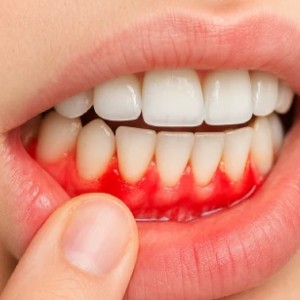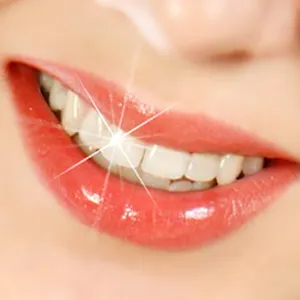Early Signs to Watch For Regarding Gum Disease in Annapolis

Your smile says more about you than words ever could — but sometimes, the first signs of trouble aren’t obvious. Gum disease often starts silently, developing beneath the surface long before pain or swelling appears. By the time it becomes noticeable, the damage may already be significant. That’s why recognizing the early symptoms is key to protecting both your oral health and overall well-being.
In our previous blog, we discussed the five-step breakdown of the stages of gum disease. In this blog, we will go through the symptoms that indicate that an individual has gum disease.
6 Early Symptoms That Indicate Gum Disease May Be Developing
If you’ve noticed subtle changes in your gums, teeth, or breath, don’t ignore them. Detecting gum disease early allows for simple, non-invasive treatments and prevents the need for complex procedures later. Here are six early signs to watch for that may indicate it’s time to schedule a dental evaluation.
-
Persistent Bad Breath
- Unpleasant odor that doesn’t go away even after brushing
- Foul taste in the mouth that lingers
- Plaque buildup near the gumline is causing bacterial growth
- Gum pockets trap food particles and bacteria
- Indicates bacterial infection beneath the gums
Bad breath isn’t just embarrassing — it can be one of the first clues of gum infection. When bacteria thrive in your mouth, they produce toxins that lead to inflammation and odor. Regular cleanings and timely dental visits can help remove these bacteria before they cause lasting damage.
-
Red, Swollen, or Tender Gums
- Gums that appear darker red than usual
- Tenderness or discomfort while brushing or flossing
- Swelling along the gumline
- Bleeding after minimal pressure
- A precursor to gingivitis, the initial phase of gum disease
Healthy gums should look pink and feel firm. Redness and swelling are signs of irritation and inflammation, often caused by bacteria in plaque. At this stage, gum disease can usually be reversed with professional care and improved hygiene.
-
Bleeding When Brushing or Flossing
- Blood on your toothbrush or dental floss
- Gums that bleed easily during daily oral care
- Irritation caused by bacterial buildup
- Weakening of gum tissues over time
- Signals inflammation that needs immediate attention
It’s a common mistake to dismiss bleeding gums as normal, especially if you’re brushing vigorously. However, bleeding is never healthy — it’s your body’s way of signaling infection. Visiting an emergency dentist in Annapolis early can prevent further progression into periodontal disease.
-
Receding Gums
- Gums pulling away from teeth
- Teeth appearing longer than before
- Sensitivity to hot or cold foods
- Small gaps are forming between teeth
- Possible bone loss beneath the gums
When gums start to recede, the protective tissue that surrounds your teeth weakens. This not only affects your smile’s appearance but also exposes the roots, leading to sensitivity and decay. Early treatment can help halt the process and restore gum health before serious structural issues develop.
-
Loose or Shifting Teeth
- Slight movement or wiggling of teeth
- Difficulty biting or chewing normally
- Changes in how teeth fit together
- Possible damage to supporting bone structures
- A warning sign of advanced gum disease
Loose teeth may indicate that gum disease has spread to the bone beneath the gumline. When left untreated, it can lead to tooth loss or the need for procedures such as tooth extraction in Annapolis that patients may experience. Early intervention from your dentist can often save the tooth and strengthen the surrounding bone.
-
Gum Sensitivity and Pain
- Gums that hurt when touched
- Discomfort while eating or brushing
- Sharp pain around one or more teeth
- Inflamed or inflamed-looking gum tissue
- Potential infection spreading to deeper layers
Pain is often a late sign that inflammation is advancing. If gum discomfort persists or worsens, it’s crucial to seek care from a dentist whom residents trust. Prompt treatment can prevent infection from reaching the jawbone and spreading to nearby tissues.
Conclusion:
The health of your gums plays a vital role in maintaining your overall oral stability. Gum disease in Annapolis doesn’t just impact your teeth — it can also increase the risk of heart disease, diabetes complications, and other systemic issues. Recognizing these early signs and taking timely action can save you from discomfort, costly treatments, and permanent damage.
If you’re experiencing any of the symptoms listed above, don’t wait until it becomes painful or severe. Visit your trusted dental team in Annapolis to receive a comprehensive evaluation and the personalized care you deserve. Call us now at 410-268-9336!








 by
by 
 Cosmetic Dentistry
Cosmetic Dentistry
 Teeth Whitening
Teeth Whitening
 Emergency Dentistry
Emergency Dentistry
 Pediatric Dentistry
Pediatric Dentistry
 Invisalign
Invisalign
 Services
Services





